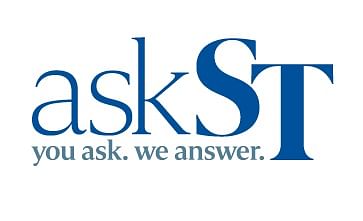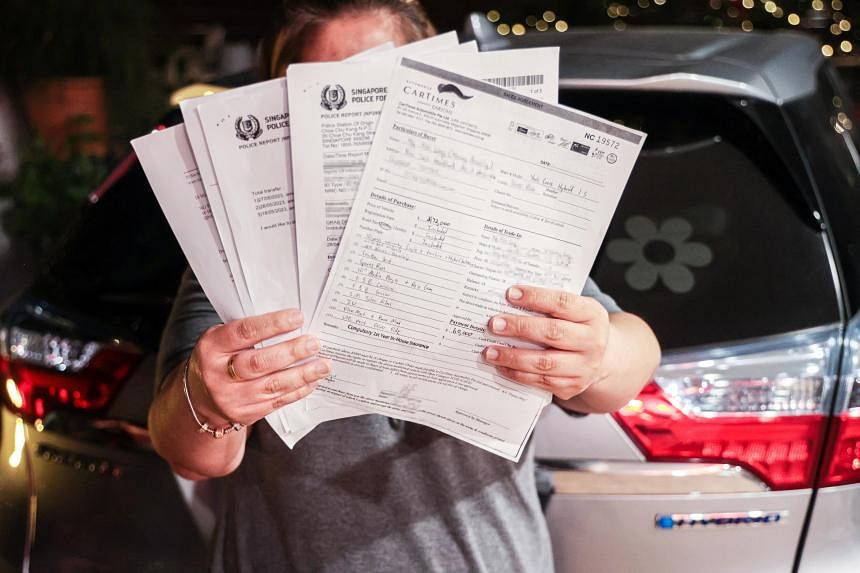SINGAPORE – With the current high certificate of entitlement (COE) prices here, buying a car is a major expense for many. Knowing how to safeguard yourself against shady salesmen or car dealers may just save you from burning through your funds.
According to the Consumers Association of Singapore (Case), there were 518 complaints against the motor car industry from January to May.
The Straits Times reported in February that Case received 1,061 and 1,213 complaints against the motor industry in 2021 and 2022, respectively – the fourth-highest number in both years among various industries.
In May, a salesman from CarTimes Group became uncontactable after he allegedly collected from a customer $67,000 and an old Honda Shuttle traded in for $105,000.
Here are some things you should look out for, if you are in the market for a new ride.
Q: How can I ensure that the car dealership is legitimate?
A: Venture Cars’ general manager Shaun Lee advised prospective buyers to do online checks on the company – such as searching for its business profile on the Accounting and Corporate Regulatory Authority website and checking the company’s reviews on social media – as well as visiting the dealership in person.
“It would also be safer to buy from a CaseTrust-accredited dealership as all of them have to be members of the Singapore Vehicle Traders Association (SVTA) before they can be accredited by Case,” said Mr Lee.
According to SVTA’s website, the CaseTrust-SVTA accreditation is given to businesses that have “good sales practices and standards” and have policies such as an insurance bond capped at $50,000 to protect the fees and deposits paid by customers in the event of an unresolved dispute.
Buying from dealerships affiliated with an authorised distributor is a plus, said Republic Auto’s chief executive Royston Soh.
“Authorised distributors are companies that have been granted exclusive distribution rights for a particular car brand by the manufacturer of the vehicle,” he said.
“An authorised distributor must adhere to strict guidelines and compliance in terms of sales and after-sales practices.”
Q: How do I ensure my transaction is safe?
A: Customers should always make sure that payments are made to the company and not to individuals, said Mr Soh, who added that most dealerships accept cheques, cashier’s orders or digital payment methods such as PayNow.
“A typical dealership sales and purchase agreement would usually state the payee’s name, which is the company’s name,” said Mr Soh.
“If you’re using PayNow, ensure that you’re paying to the company’s unique entity number (UEN). Customers are advised to keep proper, detailed records – everything from contracts, receipts and invoices to various agreements – which will come in handy should there be a dispute.”
A UEN is a standard identification number issued to entities such as businesses and societies, and cannot be issued to individuals.
Kah Motor’s general manager Nicholas Wong recommends that customers conduct all transactions within the vicinity of the car showroom to ensure legitimacy, and avoid cash payment without any official receipt.
Q: Must I pay the entire sum in full before getting my car?
A: Instead of making a lump sum payment for a car, opt instead to pay in stages, said Mr Lee of Venture Cars.
For customers of Kah Motor, an exclusive distributor and retailer of Honda cars in Singapore, a payment of $11,000 would first be needed to secure the car model and colour of their choice, and to bid for a COE, said Mr Wong.
Customers can then check for themselves online if they have secured a legitimate COE, before making the rest of the required payment directly to the company via cheque or credit card. They should receive their car within three to four days after payment.
Q: How can I ensure the pre-owned car that I am buying is in good condition?
A: Those looking to buy a pre-owned car are encouraged to use the Standard and Functional Evaluation (Safe) checklist, and send the car for independent evaluation before purchase, said Case president Melvin Yong.
The Safe checklist guides prospective buyers and car dealers through the checks they should perform before a purchase, said Mr Yong. It was developed in consultation with industry stakeholders such as SVTA and professional vehicle evaluation centres and launched by Case in 2017.
The checklist, which can be found on SVTA’s website, includes information to be filled out by car dealers and evaluation centres, including the mileage of the pre-owned car and the functionality of different car parts.
“(Using the checklist) will then help reduce potential disputes over the condition of the pre-owned car and defects that might arise subsequently,” added Mr Yong.
Complaints lodged against the motor car industry over the years generally pertain to defects that surface in pre-owned cars after the purchase, misleading or false claims made by motor dealers about the condition of cars, and motor dealers’ unfulfilled contractual obligations, said Mr Yong.
Q: When signing a purchase agreement, what should I look out for to protect myself in case of a dispute?
A: Buyers should read through the agreement very thoroughly before signing anything, said veteran criminal lawyer Amolat Singh, who added that they should always ask for any verbal promises or assurances given by the car dealer to be put in writing.
“Always insist on official receipts for any payment made to the company, and do not accept an offer by the car dealer to meet at any place outside the company premises to collect any payment,” said Mr Singh.
The law operates on the “caveat emptor” principle, which means to let the buyer beware, added Mr Singh. It expects buyers to do their due diligence and establish whom exactly they are dealing with.
“The need to read and understand the agreement cannot be overstated. Once an agreement is signed, there are very limited and specific instances under which the agreement may be set aside,” he said.
“When buying a large-ticket item like a car, the decision to enter into a sales agreement should not be about the price alone. Do not shy away from asking some hard questions.”
“The consumer protection laws provide a certain level of protection but they cannot cover every possible scenario.”
Q: What should my next course of action be if I’ve been cheated out of my money?
A: Victims are advised to first contact their bank or the relevant financial institution to check if it is possible to cancel the transaction, said Trident Law Corporation senior associate Tan Jun Yin.
“If you have disclosed your card or bank details to the potential scammer, immediately freeze your account and cancel your cards to prevent further funds from being lost,” said Ms Tan.
She added that a police report should then be made, and victims should submit any written communication between both parties.
Victims can also consider lodging a magistrate’s complaint, said Mr Singh. This provides a possible remedy for the victim if there is a non-arrestable offence, or an offence is not further investigated by the police.
“Apart from the ‘criminal route’ of seeking redress, the victim could also bring a civil claim for recovery of the money paid,” said Mr Singh.
However, there are practical difficulties involved – the culprit needs to be located for claim papers to be served.
And even if the culprit is located and procedures followed, he might not be able to pay the judgment sum, possibly leaving the victim with just a paper judgment.
“Hence, the lesson is to get it right from the beginning, instead of mounting a ‘salvage operation’ trying to get the money back,” said Mr Singh.



